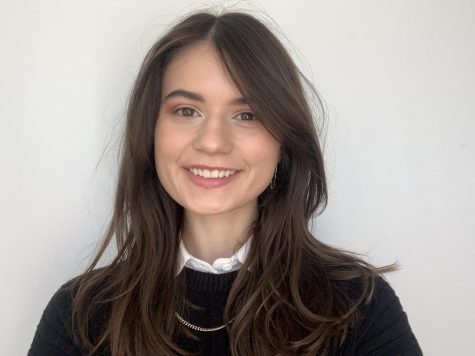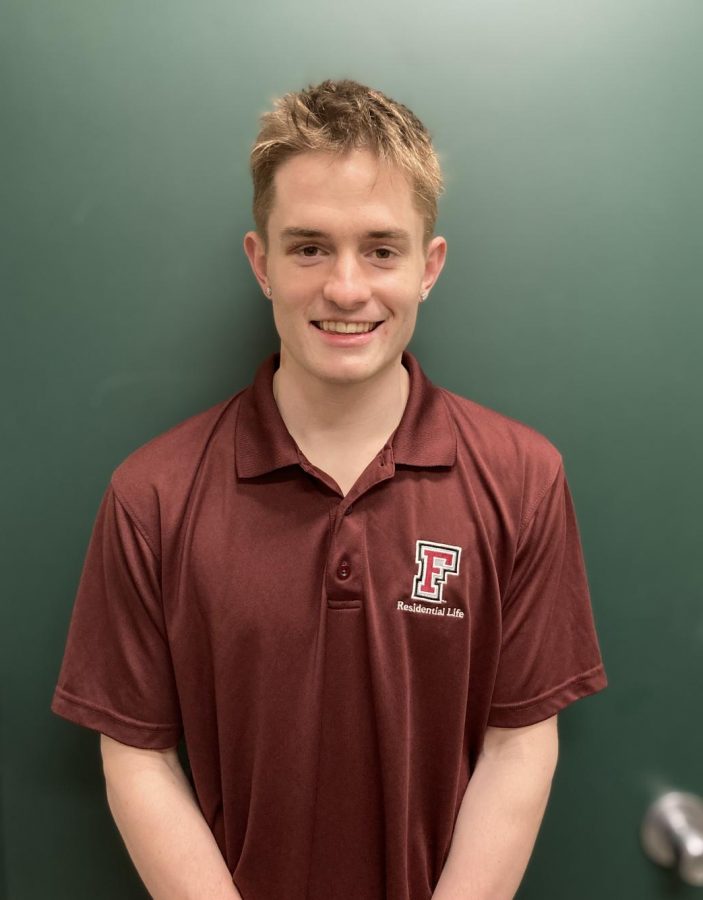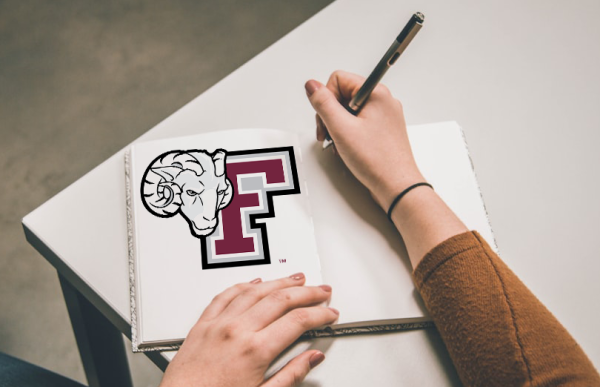Peter Wolff, Anti-Racism at Fordham
Are Fordham students educated in and exposed to anti-racism? Peter Wolff, FCRH ’23, spent the last year researching whether students felt the university promotes anti-racism and racial literacy.
Wolff was inspired to pursue his anti-racism research after taking a course with Dr. Nana Osei-Opare, a professor in Fordham’s history department, during his first semester at Fordham. Wolff went to office hours with Osei-Opare quite frequently and decided to continue working with him after the semester ended. He completed an independent study last spring with Osei-Opare, where they covered in-depth the “forms of racism that exist in the United States,” said Wolff.
Learning from Osei-Opare inspired Wolff to investigate anti-racism within the Fordham community, he said.
Wolff’s research proposal lays out what he hopes to accomplish: “This will be the first study in Fordham’s history to determine how students, particularly white students, understand racism and how it operates and Fordham’s complicity in promoting it. As Fordham pushes to create an anti-racism structure, it needs first to understand how racism permeates through the institution and how it as an institution fosters or undermines racial literacy.”
He spent the summer months researching anti-racism further and created a survey for students to fill out to gauge whether they felt they were receiving an anti-racist education and experience at Fordham. It included 33 short-answer questions on three broad topics: “Bronx Engagement,” “Programs and Clubs” and “Curriculum.”
After getting his questionnaire approved by the university, he sent it out for students to complete in November. Wolff expected to receive a few dozen responses, but over 200 Fordham students completed his survey, he said. He primarily was able to reach the student body through popular Instagram pages like @letstalkaboutitfordham and @blackatfordham, said Wolff.
Wolff attributed the unexpectedly high number of responses at least partially to increased activism among the student body after the Black Lives Matter protests of last summer. “Those [Instagram pages] would not have been created without the protests and everything that happened with George Floyd, and my survey would not have gotten the response that it did without the movement that was created by those social media platforms,” said Wolff.
Wolff also said it was gratifying to watch so many Americans start to take a more active interest in anti-racist education over the summer but was also a little frustrated it hadn’t happened sooner. He said he hopes that more people will take the time to fully understand the complex issue of racism in America. “I realized after these protests that for a society to become anti-racist and racially literate … it needs to be an ideological revolution,” said Wolff.
In terms of the Fordham curriculum, Wolff said the results of his survey suggest that while many students feel they have the opportunity to take courses, they would like anti-racism to be more ubiquitous in the course catalog. “The common theme [among respondents] was that you can find classes that will help you see different perspectives about different cultures and different races, but you really have to deliberately act to get that education,” said Wolff. He said some survey respondents expressed the opinion that it is easy to “coast by” with the core curriculum by taking very Eurocentric courses.
Wolff said that his survey responses suggested the most active participation in anti-racism comes from joining clubs at Fordham that focus on activism, racial identity and multiculturalism. Wolff pointed out that this is an area that is much more student-driven than the Fordham curriculum.
He also found that while most Fordham students he surveyed engaged with the Bronx community, over 90% reported this engagement primarily came from community service. “The relationship we have built with the Bronx is purely service-based,” said Wolff. “It’s created this division between the two communities.”
Wolff said a large majority of students surveyed expressed interest in engaging more with the community outside the gates.
As a white student at Fordham, Wolff advocated that other white members of the university community be willing to educate themselves and admit their inherited prejudices. “I’ve had to say to myself, ‘I’m racist,’” said Wolff. “I’ve got to reteach myself. I’ve got to read and have these discussions and be willing to be uncomfortable.”

Abbey Delk is a junior from Wheeling, West Virginia, double majoring in English and journalism and minoring in film & television. Her career at the...












































































































































































































